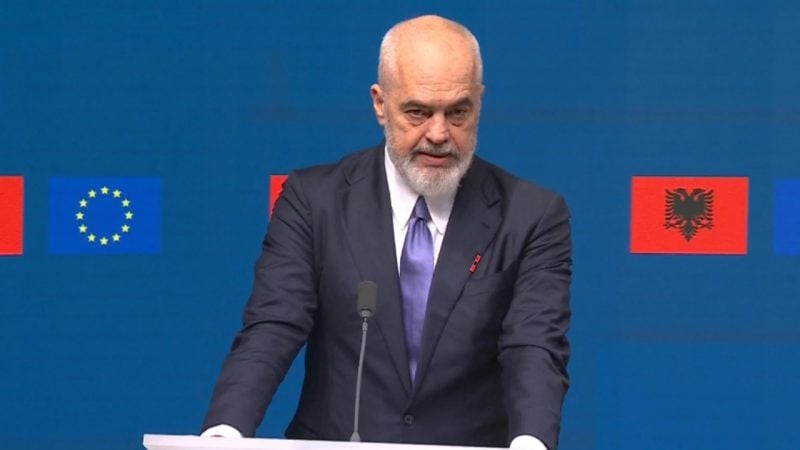 The Washington Agreement Must Be Reactivated!
The Washington Agreement Must Be Reactivated! 
Analyst Skender Minxhozi, also Chief Editor of the weekly “Java”, was
invited on Top Channel’s main news edition to speak about the political
situation in our country since the toppling of the former dictator
statue, Enver Hoxha.
Mr.Minxhozi, you were one of the protagonist students of the February 1991 events. 24 years from the toppling of Enver Hoxha’s monument, is Albania anywhere near its ideals, and how much has it changed in the first years of pluralism?
Skënder Minxhozi: This is a special day that commemorates the de facto fall of communism, although it was after the meeting between the students and the political leaders of that time, in December. The toppling of the communist officialized the fall of the regime. Today is the classic case of the half full and half empty glass. I am convinced that there is a lot of disappointment today. I have the impression that the historic change that took place that day faced the cynical situation of the transition years. The Albanian society made a historic and emancipating step, but things are not as they should have been.
This week marked other conflicts between the President and the government, with newer details.
Skënder Minxhozi: The fact that we have today such a fragile institutional life, including the president and other institutions, is an indicator of the past transition, to answer the first question. As for the failure to decree the ambassadors, it ended up with extreme declarations, especially bu the Head of State, who I think has not understood his role yet. He said that he would behave with Rama in the same way that Rama behaves with him. He is not Rama or Berisha, but the representative of an institution. The logic is that these two parties have conflict between each other, but the President doesn’t have this luxury. I don’t understand why he must come down to this game. He comes unexpectedly in a TV show where he speaks about the phone calls he has made with the Prime Minister. This means that Nishani is just a political player.
The former Prime Minister, Sali Berisha, has been once again the main protagonist of the opposition with his appearances in public and interventions in Parliament. He has attacked the government and also criticized the new leader, Lulzim Basha. Does this show that he is still the one giving the tone of the opposition?
Skënder Minxhozi: I have always thought that the post-Berisha transition would be strong for the Democratic Party and its structures. Basha is such a big offense to the party. The DP has not assimilated his figure yet, but only that of Mr.Berisha. The fact that Basha is Mayor and outside the Parliament makes him a weak leader. And Berisha doesn’t hesitate to fill his absence. This week Berisha created a conflict that seems very old in history, 18 years ago. He called the interview of Prime Minister Rama in the Italian media as a political passion. It was his tactic against Rama.
What would you call this, seeing where most of the media are focusing on?
Skënder Minxhozi: It was an Albanian week, because it had everything. The fights, the former Prime Minister that never misses an appearnce on TV, and the Prime Minister who didn’t hesitate to speak for journalists even outside Tirana.
Top Channel







